Citroën is joining the niche electric MPV sector with a battery-powered version of its Spacetourer van-based model.
The e-Spacetourer, which can accommodate up to nine people, features an electric motor putting out 134bhp and 192lb ft of torque in place of the standard model’s diesel engine. Mated to a 50kWh battery pack, that’s enough for a WLTP-certified 143-mile range and a top speed of 80mph.
Three driving modes allow you to reduce or increase the power level to conserve range. Eco mode drops the output to 80bhp and reduces the air-con power draw, Normal increases that to 107bhp and Power brings the full 134bhp.
Citroën claims the under-floor positioning of the battery pack means there is no impact on space inside over the standard, medium-length (4.95m) Spacetourer on which it is based. The battery itself is warrantied for eight years and 100,000 miles up to 70% capacity.
The e-Spacetourer comes with a Type 2 home charger, with an optional 7.4kW wallbox offered. It’s also capable of rapid charging at up to 100kW, taking the battery from empty to 80% in 30 minutes. Charging can be monitored via an app, while model-specific features such as thermal pre-conditioning are added.
Pricing for the e-Spacetourer has yet to be revealed but, with top-spec versions of the diesel model costing upwards of £40,000, it’s likely to be in that region. First examples will arrive in the UK at the end of 2020.
READ MORE
Peugeot e-Traveller launched as eight-seat electric MPV

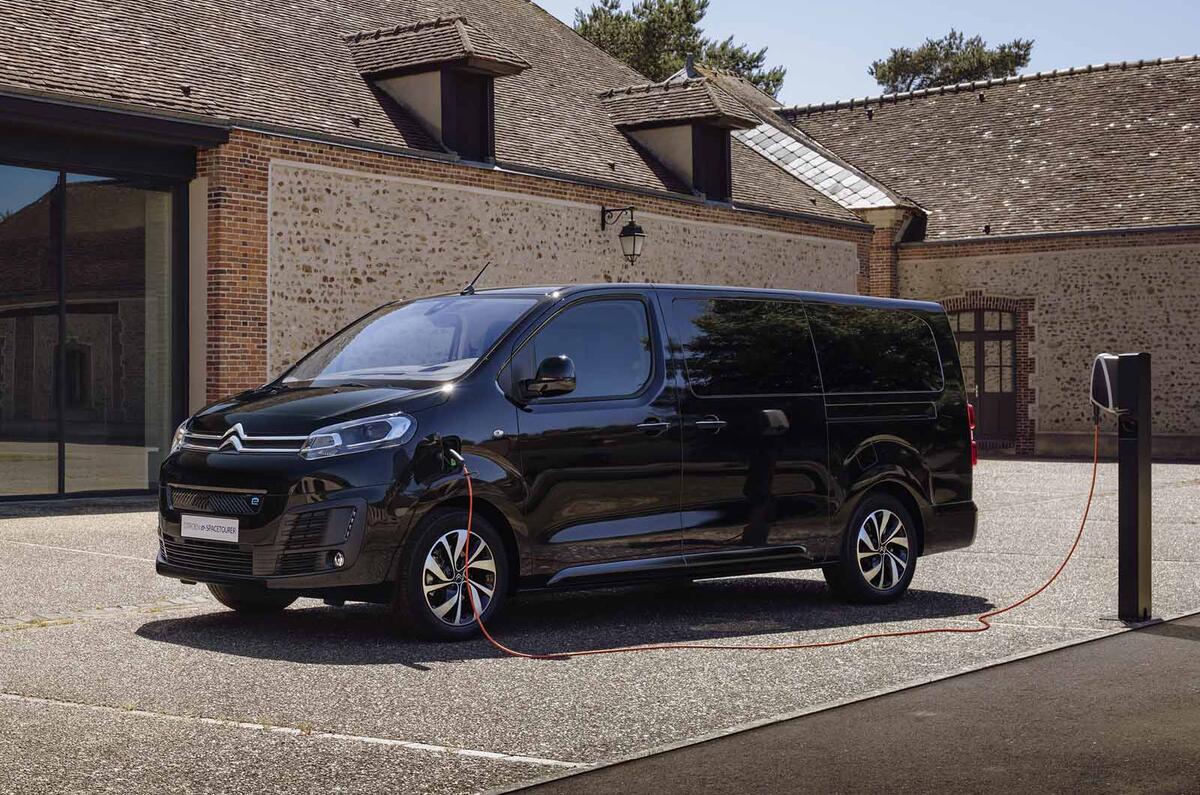
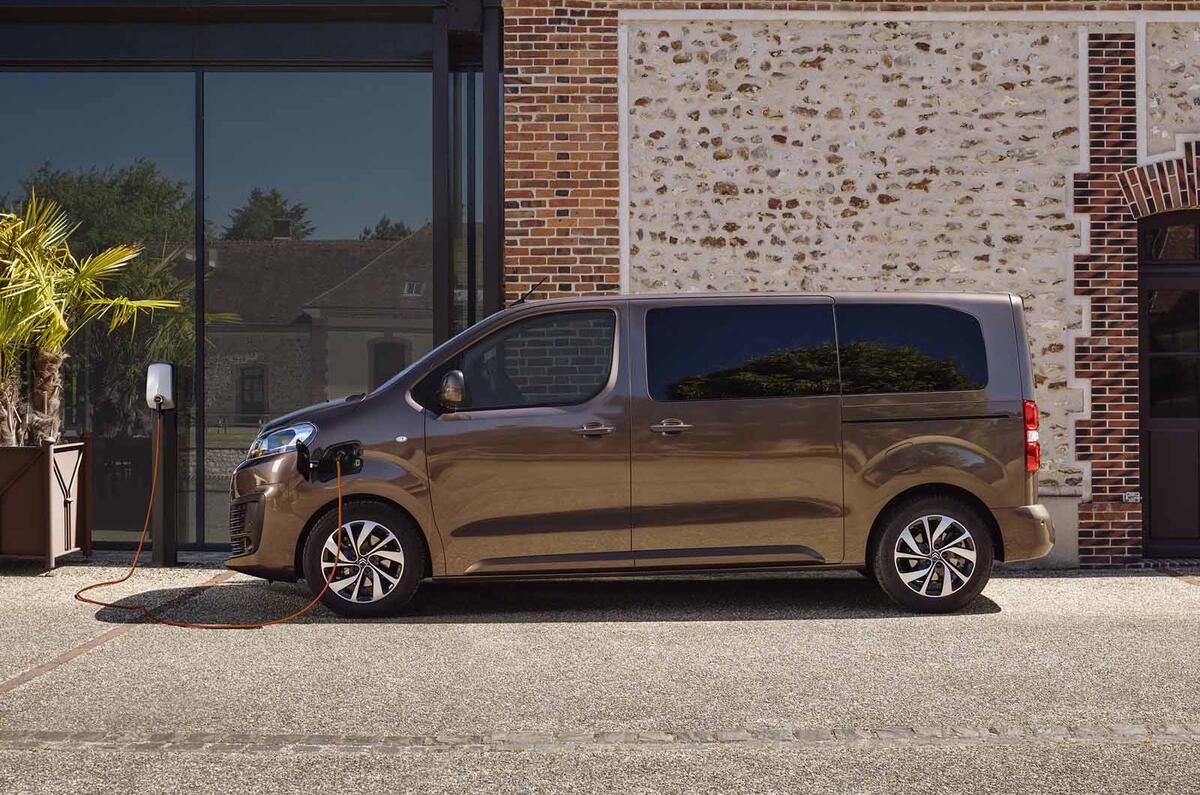
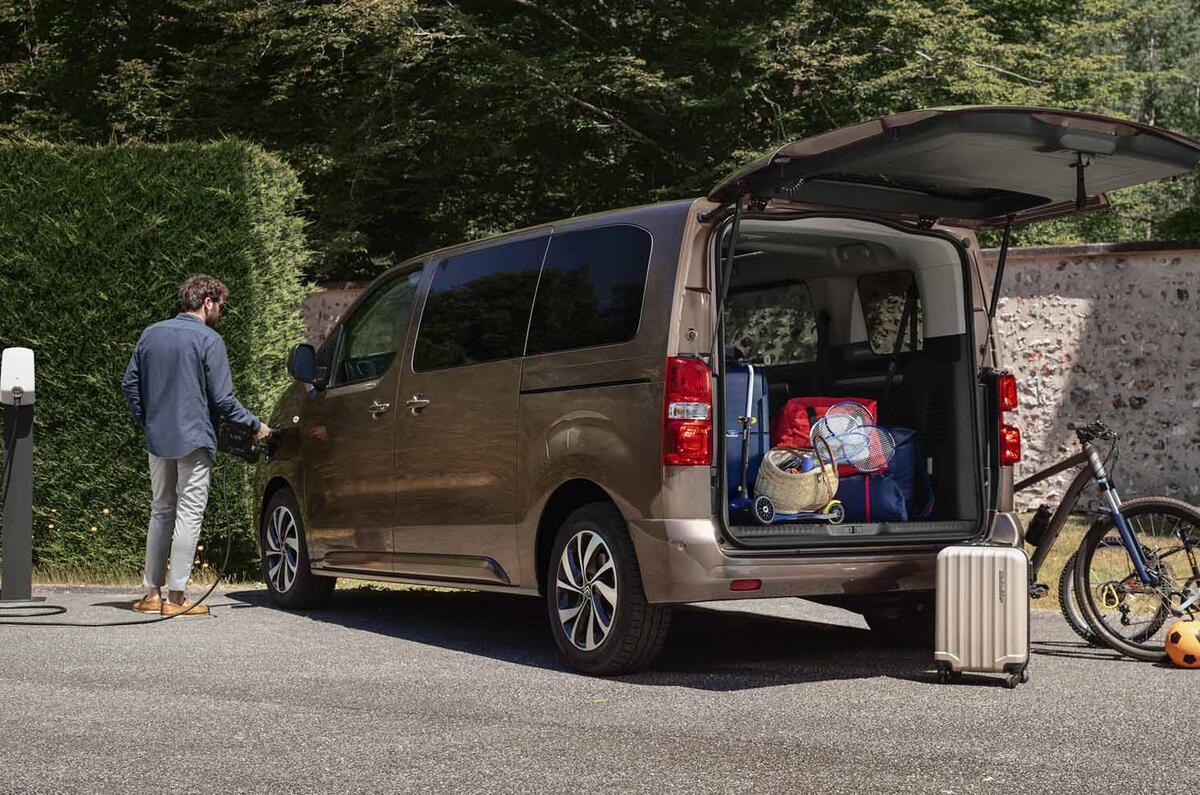
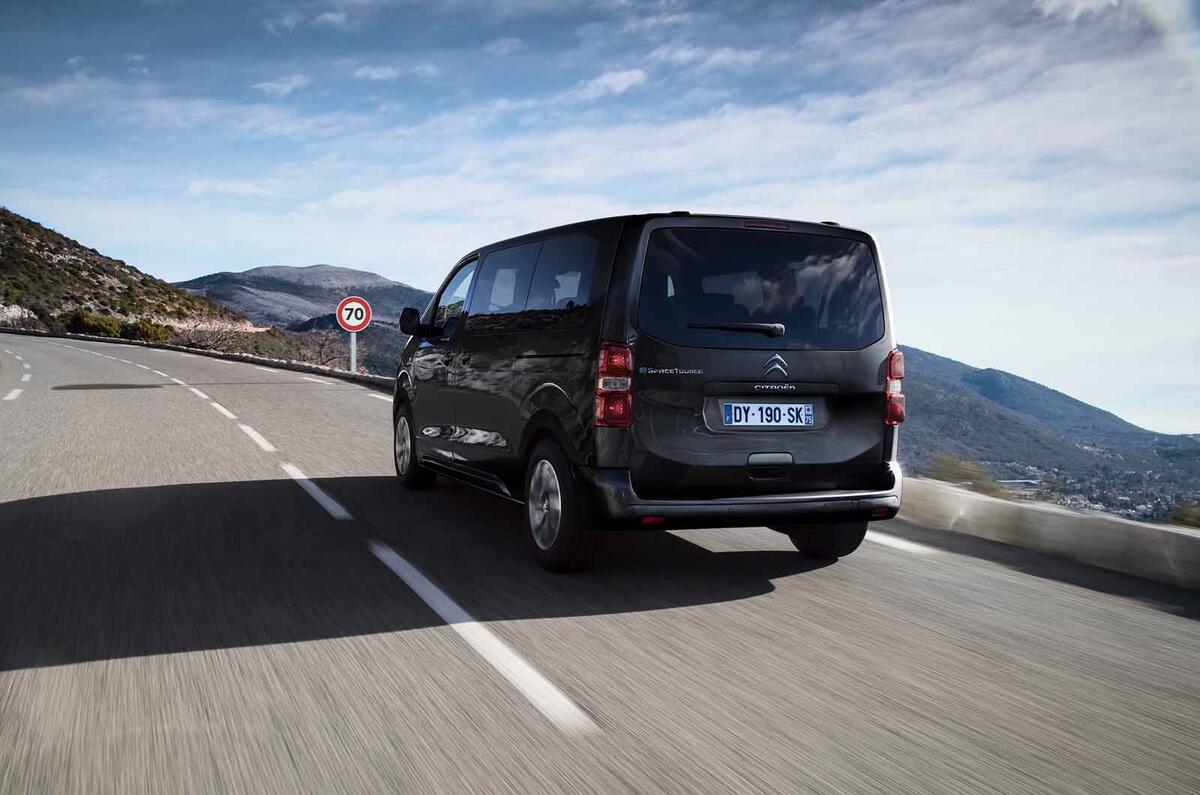
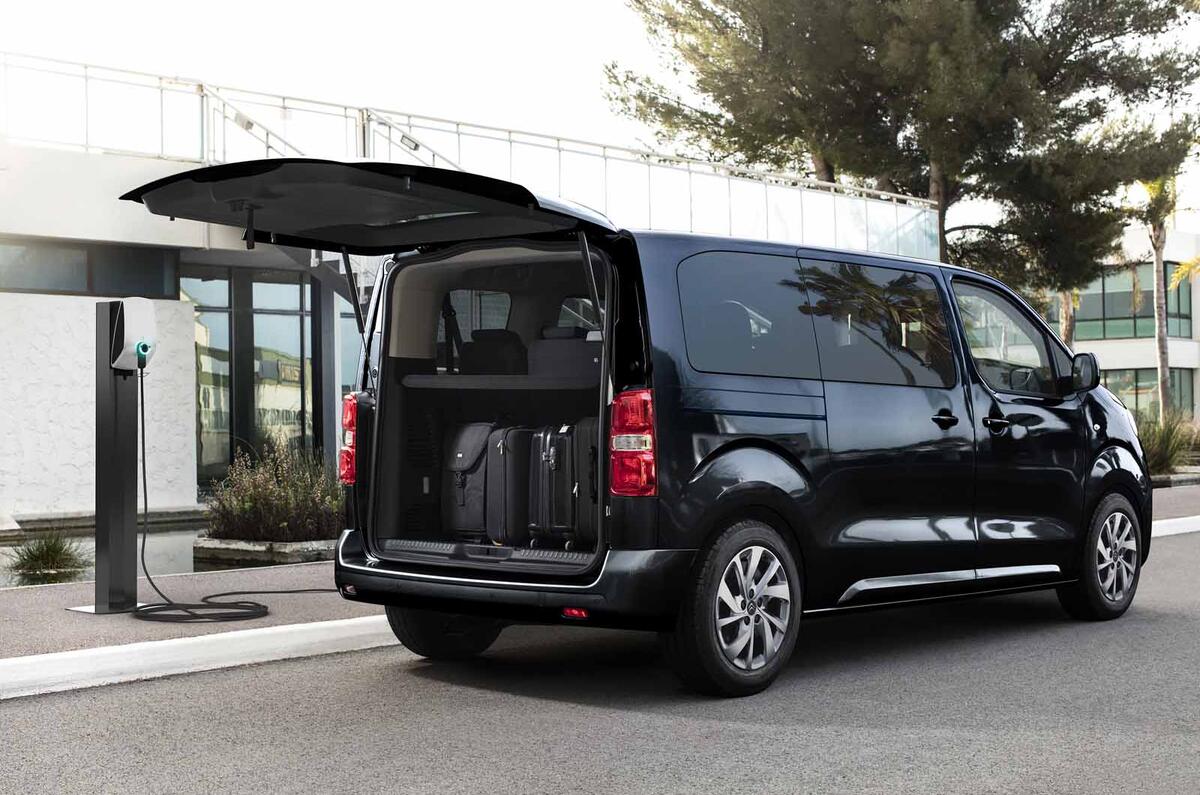
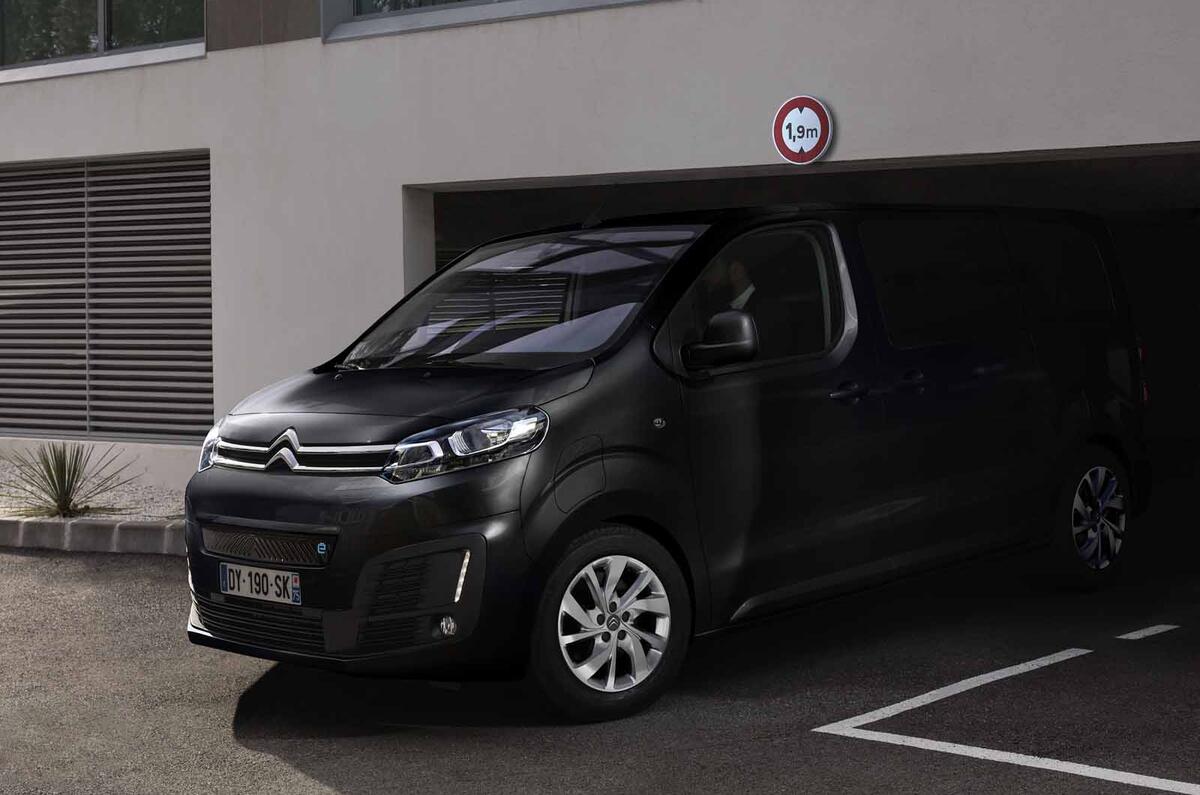
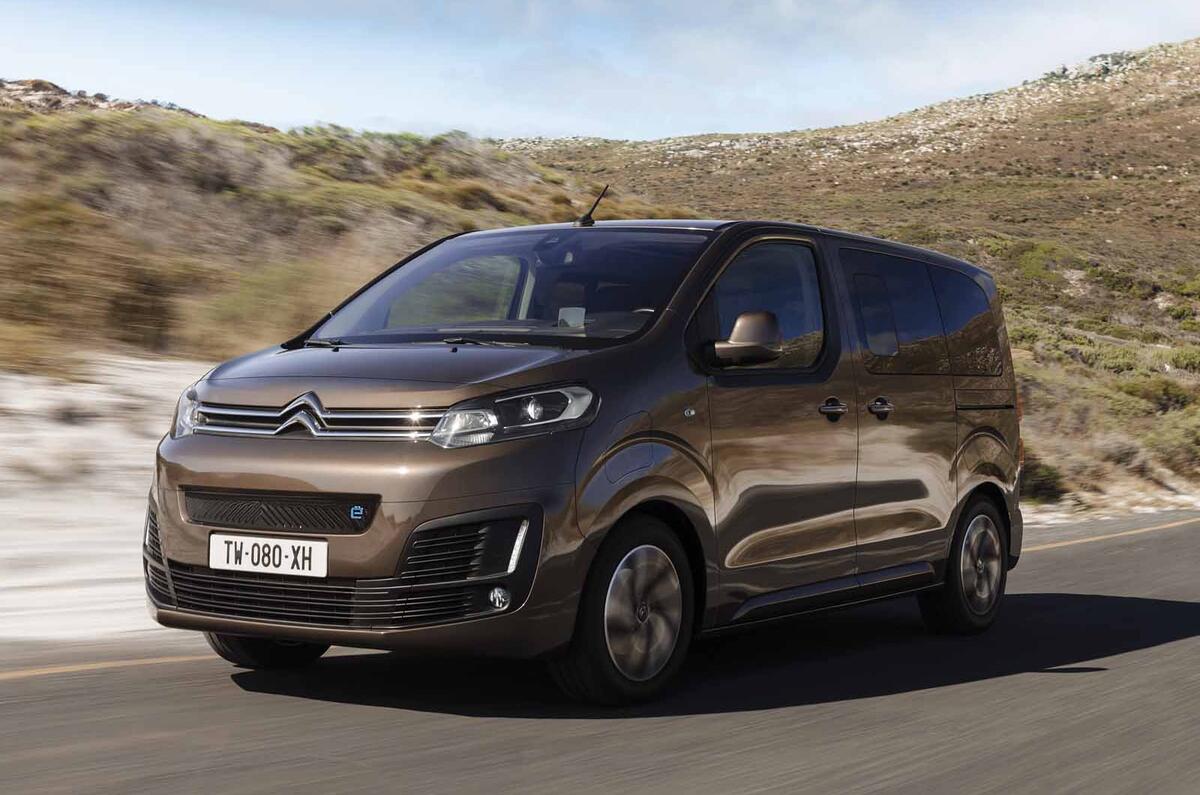




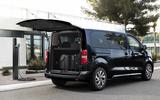




Join the debate
Add your comment
Electric Citroen
The use of electric motors may increase PSA car reliability, a great promotion to French brilliant engineering.
French brilliant engineering
LMAO!
Espace?
Very surprised nobody at Renault has launched a legal challenge.
e-Space is very similar to Espace
soldi wrote:
interesting point, you'd think Renault would object.
Would guess this might be popular for AddisonLee type London chauffeuring services.
People are going to get hung
People are going to get hung up on the range but 100 mile per day of driving 6 days a week is 31,000 miles per year.
Likely more than most minibuses are actually driven, though obviously the more miles driven the more savings would accrue.
I suspect the principal issue will be the the buyers of minibuses not being the most proactive, empowered or tech savy population. Ergo it will probably need some form of government coordination/inducement to get buyers to even consider it.